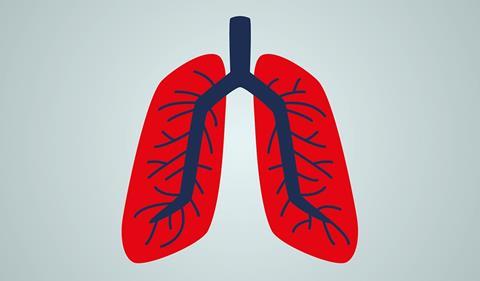Manchester University Foundation Trust’s Wythenshawe Hospital won the 2018 HSJ Award for acute or specialist services redesign – North and Midlands, for its programme for rapid access to pulmonary investigations and diagnosis

Lung cancer is often diagnosed very late and only after a patient has been through a battery of tests: even when diagnosed, patients can face a wait to start treatment and the cumulative impact of this can impact on already low survival rates.
A groundbreaking programme at the Wythenshawe Hospital in Manchester has meant patients are seen quicker for a CT scan – the first stage in the investigative process for many of them – and have all their investigations completed earlier, allowing an informed multidisciplinary team to discuss their cases and treatment to potentially start earlier.
Patients – many of whom are from deprived backgrounds – have fewer trips to hospital as, whenever possible, they have multiple tests on the same day. Those who do not have lung cancer are also likely to be told earlier – reducing stress on them.
The RAPID programme was introduced at the North West Lung Centre at Wythenshawe Hospital, part of Manchester University Foundation Trust, in March 2016 but drew on years of preparation. Central to it is “next day” access to CT imaging with the results reported and reviewed that day.
Many cases will require further tests before a diagnosis and this has been streamlined to ensure as many as possible are done on one visit and investigation results are reviewed daily. That’s important because many of the patients whose cancer is most curable are the ones who face the most tests – and previously have had the longest journey through the system.
This has meant nearly half of patients are now starting treatment within 28 days (against a national target of 85 per cent within 62 days) with 82 per cent being treated within 50 days. Patients referred by their GP are now seen in outpatient clinics, with a fully reported CT scan, in an average of just four days – down from 10.
Not only has the centre seen better patient experience and reduced waiting times, it has come at a time when the body of evidence around surgical delay shows the real impact of quicker treatment on the patient’s changes of survival
MDT teams are discussing 42 per cent of cases within 14 days of GP referral against eight per cent previously, 77 per cent have been discussed within 21 days: these discussions are a key stage in the patient’s journey towards treatment. Forty per cent of surgical patients now have their operations within 14 days of the MDT meeting.
Ambitious plans
Achieving this has involved many staff changing what they do and when. It links with ambitious plans for screening of the local population for lung cancer – anything picked up during initial screening can be investigated further through a rapid CT scan.
Lead clinician for the service Dr Richard Booton says patient feedback has been excellent but that the programme also makes sense clinically – as evidenced in improved survival rates. “I have no doubt we can be cheaper for commissioners and offer a better service for patients,” he says.
The programme was praised by the judging panel for its “clarity of purpose” and “measurable and well demonstrated impact.”
Dr Booton says winning the award has been great. “The prestigious nature of the award brings a lot of validity to the programme,” he says. “It is recognition that what we have done is inspirational – it gives us external validity of what we have done.”
His hospital’s chief executive – Wythenshawe is part of a larger hospital group – was particularly supportive and was delighted with the outcome. “It was the first time any of the hospitals within the group had ever won an HSJ award – it was very important to her.”
While it was great for members of the team to attend the awards event, he stressed that the work done to make the changes necessary for the programme went far beyond those who were able to attend.
The programme is now being extended into other areas of Greater Manchester and NHS England guidance produced last year promotes a very similar model. Many other lung cancer teams have visited to see how it is delivered.
So is it something which can be replicated elsewhere? Yes, says Dr Booton – but with just a hint of caution. District general hospitals might need to look at a slightly changed version – say, providing quick access to CT scans on three days a week, he suggests. And the level of planning and persuading that is needed to make the changes is significant and requires committed champions to make change happen.
“What we try to emphasise when we talk is that this is not extra work, it is a reorganisation of existing work,” he says.
But the hard work of bringing about change has been worth it. Not only has the centre seen better patient experience and reduced waiting times, it has come at a time when the body of evidence around surgical delay shows the real impact of quicker treatment on the patient’s changes of survival.
For more information on Manchester University Foundation Trust’s winning entry visit HSJ Solutions
The 2019 HSJ Awards are now open for entries. For more information on the Acute or Specialist Services Redesign category visit https://awards.hsj.co.uk/categories























